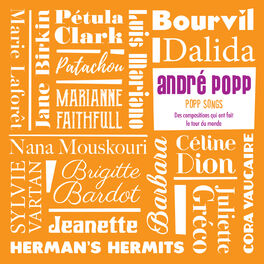

Some music singles were eventually released, but were not popular. In the 1980s, Marie concentrated on her acting career, appearing in a few French and Italian films. Although her most financially successful singles ("Viens, Viens", a cover of the German hit ″Rain Rain Rain″, and "Il a neigé sur Yesterday", a ballad about the break-up of the Beatles) were released in the 1970s, Marie progressively lost interest in her singing career, moving to Geneva, Switzerland in 1978, where she opened an art gallery and abandoned music. She was interested in making more personal records, but finally gave in. Her music stood out, perhaps too much for her new label CBS Records, which expected of her more upbeat, simpler songs.

The 1970sĪt the end of the 1960s, Marie had become a rather distinctive figure in the French pop scene. Laforêt worked with many important French composers, musicians and lyricists, such as André Popp and Pierre Cour, who provided her with a panoply of colorful, sophisticated orchestral arrangements, featuring dozens of musical instruments and creating a variety of sounds, sometimes almost Medieval, Renaissance or Baroque, other times quite modern and innovative. Her melodies borrowed more from exotic folk music, especially South American and Eastern European, than from contemporary American and British pop acts. Her songs offered a more mature, poetic, tender alternative to the light, teenage yé-yé tunes charting in France at the time. In her second film, Saint Tropezi Blues, accompanied by a young Jacques Higelin at the guitar, she sang the title song and immediately started releasing singles, her first hit being 1963's Les Vendanges de l'Amour. She married director Jean-Gabriel Albicocco, who cast her in some of his own works, including La Fille aux Yeux d'Or ( The Girl with the Golden Eyes), based on the Balzac story, which would become her nickname. Director Louis Malle then cast the young starlet in the film he was shooting at the time, Liberté, a project he finally abandoned, making Laforêt's first appearance on screen opposite actor Alain Delon in René Clément's 1960 drama Plein Soleil.Īfter this film she became very popular and interpreted many roles in the 1960s. Her career began accidentally in 1959 when she replaced her sister at the last minute in a French radio talent contest Naissance d'une étoile (birth of a star) and won. There she began to show interest for the dramatic arts and her first experiences in this domain proved to be therapeutically useful for her through their cathartic effect. After becoming more religious and having considered becoming a nun, Marie continued her secondary studies at the Lycee La Fontaine in Paris. After the war the family moved to Valenciennes where the father led a factory for railways utensils, and later they settled in Paris. During the war the Doumenachs found shelter at Cahors and in the province of their ancestors Ariège, in the village Lavelanet. At the age of three Marie suffered a sexual trauma which affected her for longtime. Marie, her sister Alexandra and their mother knew a period of many hardships. During the Second World War, the artist's father, industry man, was captured and detained as a prisoner of war in Germany until the liberation in May 1945. The singer's maternal grand father built "cabanons" in the resort of Soulac-sur-mer, in Gironde in 1886. Her paternal grand-grand-father, Louis Doumenach, led a textile factory at Lavelanet, in Ariège and his son, Charles-Joseph Doumenach, was colonel and municipal counsellor. Her father's family, Doumenach, were originally from Olette, a village in the Pyrénées Orientales, on the border of Têt. Marie Laforêt was born at Soulac-sur-Mer, in Médoc, in the villa "Rithé-Rilou", named after her aunt and her mother: Marie Thérese et Marie Louise Saint Guily. from the region of Ariège in the south of France.

The singer herself used to define herself sometimes as "ariégeoise", i.e. Her birth name Maïtena Marie Brigitte Doumenach, and her repertoire which included pieces inspired from the world folklore, have led to speculation of an Armenian origin of her parents. Doumenach, her last name, is Catalan in origin – Domènec in Catalan. Her first name Maïtena, which is of Basque origin, means "beloved", and is sometimes used by the inhabitants of Languedoc, especially of Pyrénées and also resembles the diminutive of the name Marie-Thérèse, "Maïthé".


 0 kommentar(er)
0 kommentar(er)
